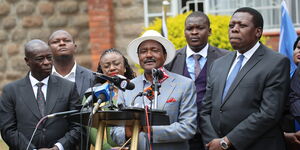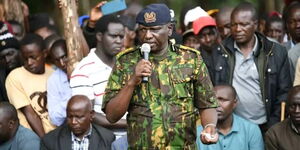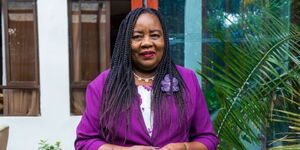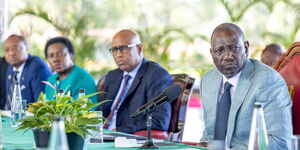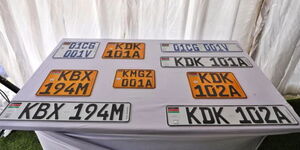The Supreme Court had by Tuesday, August 30, made significant rulings on the presidential election petition that sought to challenge William Ruto's victory.
Before the commencement of the pre-trial conference, the seven-judge bench had to determine the applications that would either be allowed or dismissed.
Here is a summary of the major rulings in the presidential petition:
The Supreme Court declined to strike out the affidavits filed by the Independent Electoral and Boundaries Commission (IEBC) Commissioners and Attorney General, Kihara Kariuki. Ruto, through his legal team, had challenged the affidavits, arguing that it would create a second-tier petition since they had already been considered as respondents in the petition. The apex court, however, threw out the application.
In addition, the AG had filed a response, arguing that IEBC chairperson, Wafula Chebukati solely acted on behalf of the Commission.
Further, the application to admit on record the replying affidavits of commissioners, Juliana Cherera, Justus Nyangaya, Francis Wanderi and Irene Masit were allowed. The four IEBC commissioners, however, will remain as respondents as they were struck out as interested parties.
The Law Society of Kenya (LSK) was admitted as amicus curiae (friend of the court). LSK had filed an application to be enjoined in the petition, on the basis that it had the expertise that would aid the apex court to arrive at a sound decision.
The International Court of Justice (ICJ)'s bid to be admitted as amicus curiae was also allowed.
Three applications by three parties seeking to join the petition were dismissed. These included applications by advocate Julius Orenge, former presidential candidate, Waihiga Mwaure and Milton Oriku.
On the other hand, applications by John Walubengo, Dr. Joseph Sevilla and Martin Mirero seeking leave to be joined as amicus curiae were allowed.
The second affidavit, filed by former journalist and corruption whistleblower, John Mark Githongo, explaining the authenticity of the logs was allowed. Githongo had argued that a team of 56 hackers was allegedly hired to manipulate Forms 34A before they were uploaded into the IEBC system.
The Supreme Court is scheduled to make the final ruling on the presidential petition on Monday, September 5.

